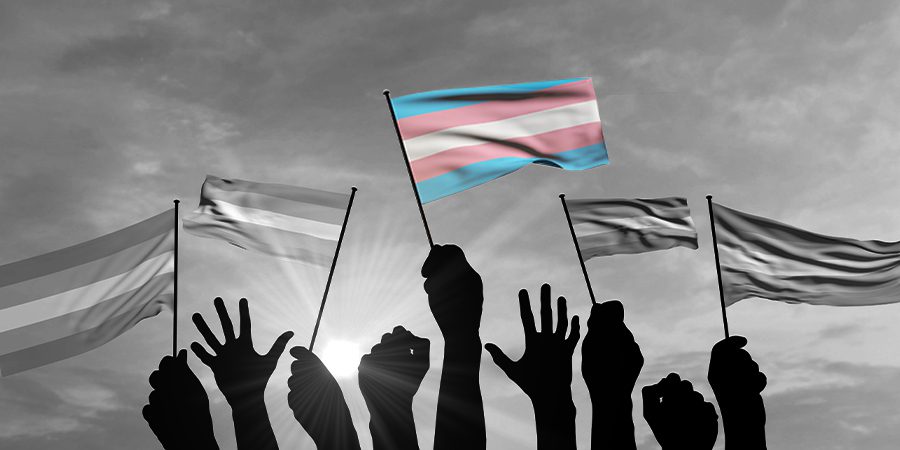In this article, we’ll look at the tragic death of Koko Da Doll, a prominent figure in the forthcoming documentary “Kokomo City,” which sheds light on the lives of Black transgender sex workers.
As one of three transgender women killed in Atlanta this year, her death has sparked outrage and calls for greater awareness of the epidemic-level violence facing this community.
Key Takeaways:
- Koko Da Doll, a 35-year-old transgender woman, was shot and killed in Atlanta.
- She was featured in “Kokomo City,” a documentary about Black transgender sex workers.
- Koko Da Doll’s death marks the third fatal shooting of a transgender woman in Atlanta in 2023.
- Atlanta police are investigating whether these shootings should be classified as hate crimes.
A Rising Star Gone Too Soon
Koko Da Doll, a talented 35-year-old transgender woman and rising star, was tragically killed in a shooting incident in Atlanta this week.
As one of the subjects in the upcoming documentary “Kokomo City,” her untimely death has left a profound impact on the transgender community and the film industry alike.
Koko Da Doll, whose real name was Rasheeda Williams, had begun to find success not only as a documentary subject but also as an aspiring rapper.
The Documentary “Kokomo City”
“Kokomo City” is a forthcoming documentary that delves into the lives of four Black transgender sex workers in New York City and Georgia.
By offering an intimate portrayal of their experiences, the film aims to humanize the struggles and aspirations of transgender women of color.
Koko Da Doll played a prominent role in this documentary, sharing her unique story and shedding light on the dangers faced by Black transgender women in America.
The film, which premiered at the 2023 Sundance Film Festival, earned three major accolades, including the Sundance Audience Award.
Its public release date, however, remains unavailable at this time.
An Epidemic of Violence Against Transgender Women
Koko Da Doll’s death is the third fatal shooting of a transgender woman in Atlanta since the beginning of 2023, highlighting an alarming trend of violence against this marginalized community.
The Atlanta police department acknowledged in a statement that there is an epidemic-level of violence that Black and brown transgender women encounter in America.
The LGBTQ advocacy group GLAAD also expressed their sorrow and concern, stating that “Williams should be alive today” and emphasizing that “all transgender people deserve to live in safety and acceptance, beloved by their families, communities, and able to contribute to a world where all are more free.”
Police Investigation and the Search for Justice
As the investigation continues, Atlanta police have not yet found any evidence to suggest that the victims were targeted due to their gender identity.
However, they are considering the possibility of classifying these shootings as hate crimes.
The police department stated that “our investigators have not found any indication the victim was targeted for being transgender or a member of the LGBTQ+ community, and these cases do not appear to be random acts of violence.”
In Koko Da Doll’s case, the shooting occurred at 10:42 p.m. at an address corresponding to a shopping center in Atlanta.
She was pronounced dead at the scene. Similar to the other two attacks on transgender women this year—one on January 9 and the other on April 11—each case remains under investigation, with both incidents following disputes.
Amidst the ongoing investigation, Atlanta police have released surveillance footage of a person in a sports jersey walking up to the entrance of an apartment building.
Authorities hope to identify this individual to assist in their investigation of Koko Da Doll’s homicide.
Remembering Koko Da Doll
Despite the heart-wrenching circumstances surrounding her death, Koko Da Doll’s life and work will continue to inspire and impact the lives of many.
The director of “Kokomo City,” D. Smith, expressed the difficulty of processing Koko’s passing but is determined to share her story with the world.
Smith stated, “I created ‘Kokomo City’ because I wanted to show the fun, humanized, natural side of Black trans women. But here we are again.”
Producer Harris Doran also mourned the loss of Koko Da Doll, describing the tragedy as “unbearable to process.”
He praised her brilliance in the film, believing that audiences would fall in love with her as the entire production team had.
Daniella Carter, another subject of the documentary, shared a heartfelt statement on her Instagram page, expressing her grief and longing for Koko’s return.
 Sections of this topic
Sections of this topic
















